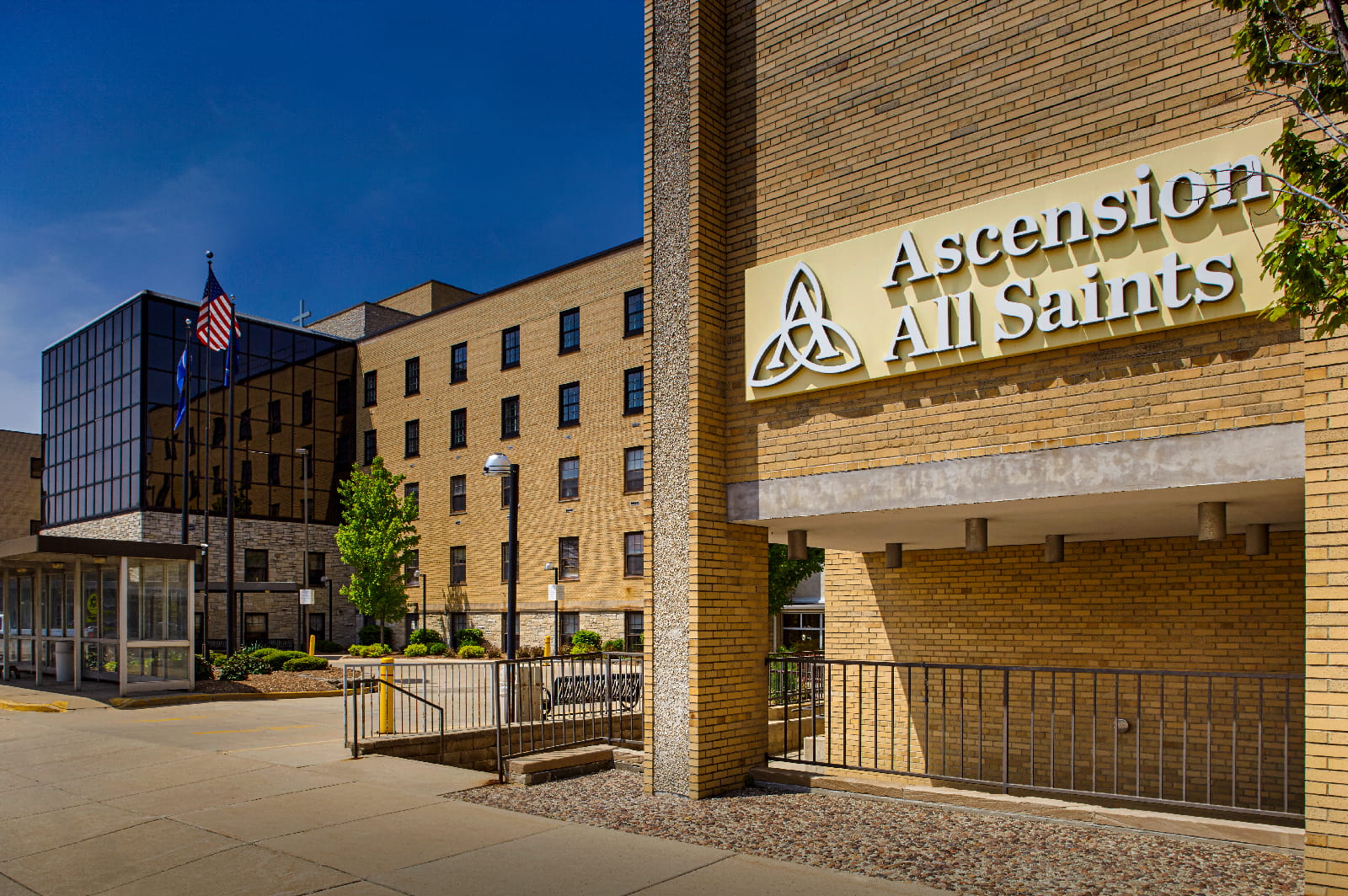Ascension All Saints - Wisconsin Avenue offers access to healthcare services for every member of your family.
We are committed to caring for the whole person – body, mind and spirit. Each time you visit, your doctor listens to your concerns and works with you to develop a care plan that meets your needs.
Family-focused healthcare
Our primary care doctors and family medicine nurse practitioners provide a wide range of services for all ages. Internal medicine doctors provide care for adults with chronic and acute medical needs. General surgeons are highly skilled, including minimally invasive surgical procedures. Highlights:
- Preventive health screenings and annual physicals for adults
- Well-baby and well-child care
- Immunizations
- Arthritis symptoms and rheumatology care
- Diabetes management and prevention
- High blood pressure
- Women’s health
Behavioral health conditions and services
No matter what struggles you face, we’re here to offer hope and a commitment to helping you feel better. Our behavioral health services include treatments for, but not limited to:
- Adolescent alcohol and drug abuse
- Anger management
- Attention deficit disorder (ADD/ADHD)
- Behaviors and stress affecting your physical health
- Couple and family conflicts
- Dementia and depression in the elderly
- Emotional health
- Grief and loss
- Mental health diseases (anxiety and depression, bipolar, schizophrenia and more)
- Post-traumatic stress syndrome (PTSD)
- Problems adjusting to changes in your life (school, divorce, unemployment, retirement or disability)
- Self-image
- Gender-identity
- Substance abuse and addictions (alcohol, drugs, tobacco)
- Women’s health (perinatal mood and anxiety disorder)
At your first appointment, our care team does a behavioral and mental health assessment. We deliver personalized, compassionate care for your needs in a non-judgmental environment. Our care team listens to understand your concerns. Behavioral health conditions often affect the entire family physically and emotionally. Our team approach offers family-centered care and counseling.
Serious and complex health problems may affect your mental health and how you manage pain. Our care team helps patients who are hypersensitive to pain or who experience depression while recovering from heart surgery, intensive critical care or cancer therapy. We are sensitive to the needs of seniors and how aging and dementia may affect your mental and emotional health. Together, we deliver care that helps improve your quality of life.
Inpatient full and partial treatment programs
In Racine, Wisconsin, Ascension All Saints - Wisconsin Avenue has a Behavioral Health Inpatient Care Unit for adolescents and adults. Psychiatrists, certified substance abuse counselors, licensed clinical social workers, and nurses work together to deliver intensive inpatient hospitalization. Partial hospitalization programs and services are also available. Your care team helps coordinate your care when transitioning from the hospital to outpatient care.
Substance abuse and opioid dependency
Doctors and care teams at Ascension Wisconsin sites of care focus on the whole you, providing behavioral, mental health, and substance use care. Caring for your mental and emotional health can help you more easily handle the stressors that can impact your overall health. If you or your child is feeling sad, overwhelmed or anxious, or struggles with an addiction, start a conversation with your primary care doctor at Ascension Wisconsin sites of care. They will listen to you and work with you on a care plan that’s right for you or your child. And if you need more advanced behavioral, mental health or opioid dependency treatment, your doctor will connect you to specialists, and help provide the compassionate support you need.
- Substance use dependency programs – When you choose Ascension Wisconsin, you get an AODA counselor and care team specializing in the treatment of opioid and alcohol dependency. Your addiction medicine specialist is certified to administer Suboxone® (buprenorphine), so you can safely withdraw from your addiction. Care teams at Ascension Wisconsin Huiras Center provide an adolescent substance use treatment program. Learn more about our adult and youth services.
Know what to do in a mental health emergency
Quickly recognizing the signs
of moderate to severe mental or emotional distress, or a substance use crisis is the first step in getting necessary care. For emergencies, including severe mental health distress and suspected opioid overdose, ERs at our hospitals are open 24/7.
Find emergency care near you.
For life-threatening medical emergencies involving suicidal thoughts, potential drug overdose or self-harm, go to the nearest ER and call 9-1-1.
